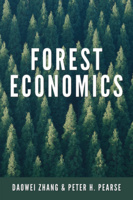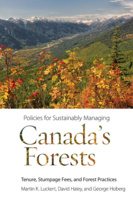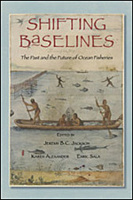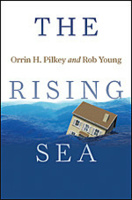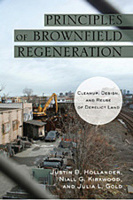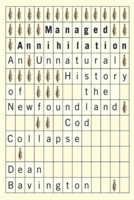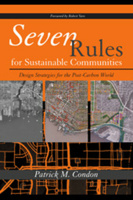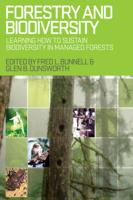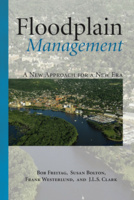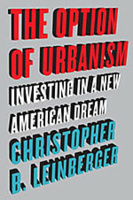Health and Sustainability in the Canadian Food System
Advocacy and Opportunity for Civil Society
Lays out new strategies for advocacy groups to achieve a sustainable, healthy food system.
Forest Economics
This book covers the basic economic principles and concepts and their application to modern forest management and policy issues.
Climate and Conservation
Landscape and Seascape Science, Planning, and Action
Climate and Conservation offers readers tangible, place-based examples of projects designed to protect large landscapes as a means of conserving biodiversity in the face of the looming threat of global climate change.
Green Cities of Europe
Global Lessons on Green Urbanism
With Green Cities of Europe, Beatley offers the North American planning community not only a vision of holistic sustainability, but a clear guide to accomplishing it at home.
Cooler, Smarter
Practical Steps for Low-Carbon Living
This science-based guide shows you the most effective ways to cut your own global warming emissions by twenty percent or more, and explains why your individual contribution is so vital to addressing this global problem.
City Rules
How Regulations Affect Urban Form
City Rules offers a challenge to students and professionals in urban planning, design, and policy to change the rules of city-building, using regulations to reinvigorate, rather than stifle, our communities.
Policies for Sustainably Managing Canada’s Forests
Tenure, Stumpage Fees, and Forest Practices
This book compares provincial forest policies on public land across Canada, and considers how they may hinder or enhance the pursuit of sustainable forest management objectives.
Offshore Petroleum Politics
Regulation and Risk in the Scotian Basin
This comprehensive study of petroleum politics in the Scotian Basin reveals the complex interplay of regulation and risk as industry, federal, and provincial authorities struggle to develop Canada's Atlantic offshore oil and gas resources.
Making Healthy Places
Designing and Building for Health, Well-being, and Sustainability
Making Healthy Places presents a diagnosis of-and offers treatment for-problems related to the built environment.
Corporate Social Responsibility and the State
International Approaches to Forest Co-Regulation
This book provides a clear theoretical lens and practical guidance on the prospects and limits of leveraging private corporate social responsibility standards, such as forest certification, alongside government regulatory efforts to achieve more effective and adaptive sustainability solutions.
Towards 0-Impact Buildings and Built Environments
A compilation of key notes and best papers of the 2010 Sustainable Building Euregional Conference.
The Rising Sea
The authoritative book on sea level rise and its coastal consequences.
Principles of Brownfield Regeneration
Cleanup, Design, and Reuse of Derelict Land
The first book to provide an accessible introduction to the design, policy, and technical issues related to redevelopment of "brownfields" – idle property whose development or improvement is impaired by contamination.
Managed Annihilation
An Unnatural History of the Newfoundland Cod Collapse
By examining one of the largest natural resource management failures of the twentieth century – the collapse of the Newfoundland cod fishery – this book seeks to understand the history of, and possible alternatives to, managerial responses to environmental issues.
The Aquaculture Controversy in Canada
Activism, Policy, and Contested Science
A comprehensive examination of the aquaculture controversy in Canada.
Seven Rules for Sustainable Communities
Design Strategies for the Post Carbon World
If widely used, these rules would lead to a much more livable world for future generations – a world that is not unlike the better parts of our own.
Where the Dragon Meets the Angry River
Nature and Power in the People’s Republic of China
This book brings big geopolitical issues to life through the narrative of a particular region and its people.
Ecology and Wonder in the Canadian Rocky Mountain Parks Heritage Site
Examining the ecology of the Western Canadian mountain region, this book argues that preserving the Rocky Mountains may be an important defence against future climate change impacts on the Canadian west.
What Is Water?
The History of a Modern Abstraction
A history of the modern concept of water that traces how a scientific abstraction has helped to produce a global crisis.
Forestry and Biodiversity
Learning How to Sustain Biodiversity in Managed Forests
Sustaining biodiversity in managed forests is a complex problem, but the authors argue that it can be done -- through adaptive management, which they describe as a structured approach to “learning by doing.”
Floodplain Management
A New Approach for a New Era
Floodplain Management outlines a new paradigm for flood management, one that emphasizes cost-effective, long-term success by integrating physical, chemical, and biological systems with societal capabilities.
Environmental Conflict and Democracy in Canada
This path-breaking collection brings together environmental politics and democratic theory to reveal the deficits of citizenship and how democracy must be extended to achieve a socially just, ecologically sustainable society in Canada.
Expansive Discourses
Urban Sprawl in Calgary, 1945–1978
A groundbreaking study of how and why the interactions between local government and land developers in Calgary after the Second World War created a city that exemplifies urban sprawl.
Farming in a Changing Climate
Agricultural Adaptation in Canada
Covering all agricultural regions and a wide variety of commodity production and farming systems, this comprehensive survey synthesizes twenty years of research on climate change and Canadian agriculture.
Cities as Sustainable Ecosystems
Principles and Practices
The Option of Urbanism
Investing in a New American Dream
Shows how the American Dream is shifting to include cities as well as suburbs and how the financial and real estate communities need to respond to build communities that are more environmentally, socially, and financially sustainable.


